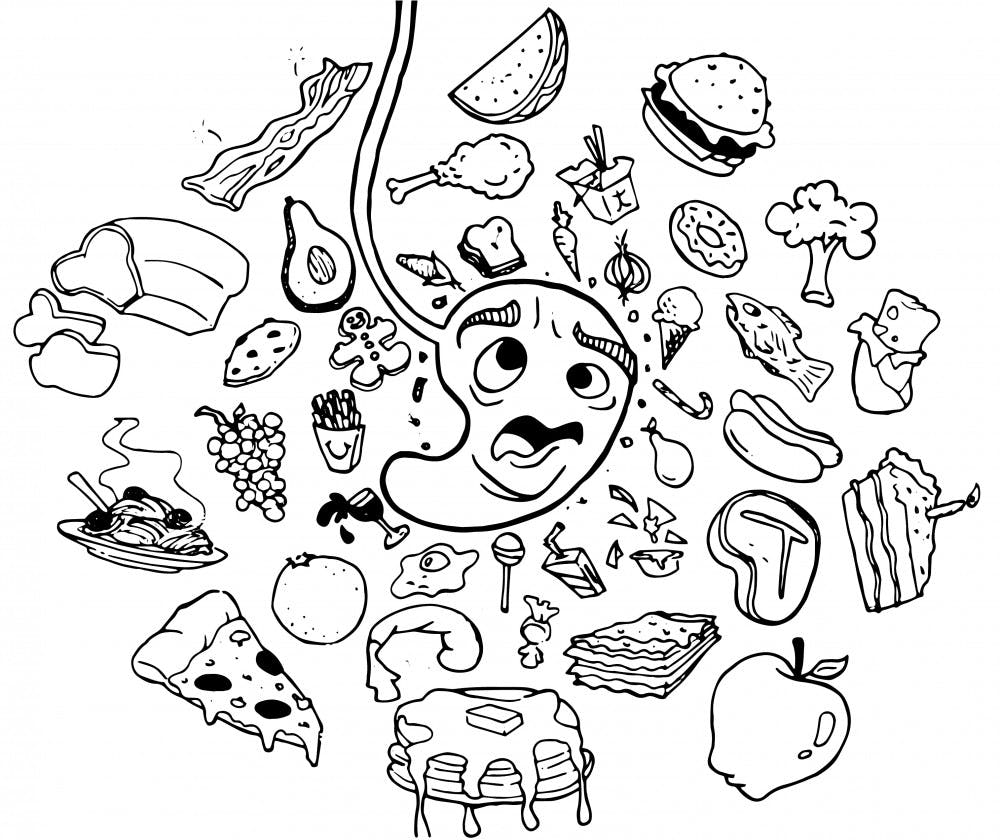In our culture of food, dieting and exercise, the clean-eating craze has made its way to the forefront.
But this type of dieting, in its most restrictive form, could lead to an eating disorder unfamiliar to most: orthorexia nervosa.
According to the National Eating Disorders Association, those who have an “unhealthy obsession” with otherwise healthy eating may suffer from orthorexia nervosa, which translates to a “fixation on righteous eating.”
Dr. Steven Bratman, who coined the term in 1997, said the disease is essentially an “unhealthy obsession with healthy food.”
“It’s not the diet that is orthorexia, it’s the diet that could lead to it,” he said. “The more extreme or restrictive the diet, the more likely it could lead to orthorexia.”
Eventually food intake becomes compulsively restrictive and this rigidity gets entangled in one’s self-esteem and self-worth.
The disease is not so new, but our recognition of it as an issue is only slowly emerging. And America’s obsession with food, and its fixation on health have moralized eating, body weight and exercising.
The original goal of clean eating is balance, but we seem to have replaced this concept with restrictive and obsessive behavior.
Eating clean has become virtuous, and we punish ourselves for slip-ups or lapses in judgment after indulging in something viewed as unhealthy.
The Editorial Board wishes to recognize that not every person who chooses to follow a “clean eating” diet will develop an eating disorder.
But when food becomes one’s identity, it can become problematic and potentially dangerous.
We categorize classic eating disorders like anorexia and bulimia simplistically: the sufferer starves themselves or binges and purges to lose weight.
But the nuances of any eating disorder do not fall so easily into definable categories, including orthorexia.
Dieting and weight loss are not the answer to happiness, despite the fact we’ve been conditioned to believe otherwise.
And when we put emphasis on unattainable body images like the thigh gap instead of living a healthy lifestyle. We set ourselves up for disaster.
Eating disorders are real, complex and can create devastating consequences when left undiagnosed. They do not occur in a vacuum and have the potential to severely alter our mental and physical health, our relationships and our overall perception of our self-worth.
When it comes to clean eating, solving the problem is not that we should blame healthy food nor is it to shame healthy eating.
But when healthy eating becomes all-consuming, taking away from other aspects of our lives that make us happy, we have a problem.
Obsessive dieting paired with an overly restrictive mentality is dangerous and can create a breeding ground for an eating disorder.
It’s okay not to be health conscientious 100 percent of the time, we promise.
Don’t forget about resources available to you for help. The IU Health Center offers nutrition consultations with registered dieticians to help students with weight control programs, counseling and support for eating disorders, diet assessments and other health concerns.
If you need help, it’s there.




